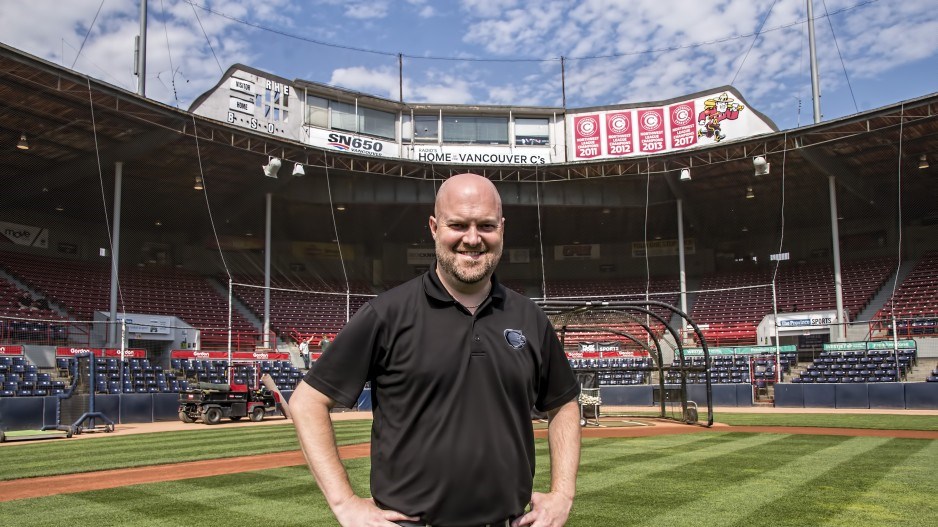After Minor League Baseball (MiLB) canceled its 2020 season due to COVID-19, the Vancouver Canadians, B.C.’s MiLB team, were forced to play their 2021 season in enemy territory: Hillsboro, Oregon.
This year, the team has come back with a vengeance, jumping up a division and nearly doubling the number of games it plays in a season.
In 2019, the Vancouver Canadians played 38 home games in the lowest division of the minor league. They managed to attract the 24th largest average attendance out of 160 teams, and the teams with higher average attendance all played nearly twice as many games.
But 2022 is a different ballgame at
Nat Bailey Stadium. This will be the first year the Vancouver Canadians play home games up a division in High-A, to which they were promoted last year. They will also play a longer season in Vancouver, with 66 regular season home games.
Allan Bailey, general manager for the Vancouver Canadians, says that while the increased number of home games will drive total attendance way up from 2019, average attendance will dip.
Rainy weather early in the season, combined with the need to reintroduce the team to the community after a two-year absence, meant that the Canadians got off to a slow start.
But despite a rocky beginning, games have been selling out. Bailey says that in the dog days of summer,
the minor league season crowds re- turned to 97 per cent capacity – the level the team became accustomed to before the pandemic.
It’s been over 20 years since pro- professional baseball was played in Van- cover during April and May. Now, as a High-A team with a longer season, it will take the Canadians some work to bring up attendance in those early months. But Bailey is confident that Vancouver, the largest market in the minor league, will be able to return to the average per game attendance level it enjoyed before the pandemic. “We’re a big league city,” said Bailey. “Vancouver is a major city compared to some of these other towns that only have a couple hundred thousand people.”
Despite lower attendance during the rainy months early in the year,
Vancouver is expected to significantly surpass the 24th largest average attendance ranking it ex- experienced in 2019.
Ultimately, this year will be considered a success both on and off the field.
The team is the second best in the North Pacific league after a turn- around in the middle of the season that saw its winning percentage jump above .500.
Bailey said everyone likes a winning product on the field, but unlike Vancouver’s other sports teams, the Canadians have no control over their roster or their team: Both are left to the team’s major league affiliate, the Toronto Blue Jays.
Instead Bailey says the organization is focused on creating an excellent entertainment product that will
attract fans regardless of the team’s win percentage. That way, it doesn’t have to scramble to fill seats when the team isn’t playing well. This strategy not only helps ticket sales, but creates a fan community.
“On a night when we have a sellout with 6,413 people here and the team is playing well, this place is electric, it’s loud, it’s a great place to be and it’s intimidating to the other team,” said Bailey.
The team has taken advantage
of its unique situation despite not playing in the sport’s major league. It is the largest market in the minor league and is affiliated with the major league team that is largely considered Canada’s team, with a huge fan base in British Columbia.




